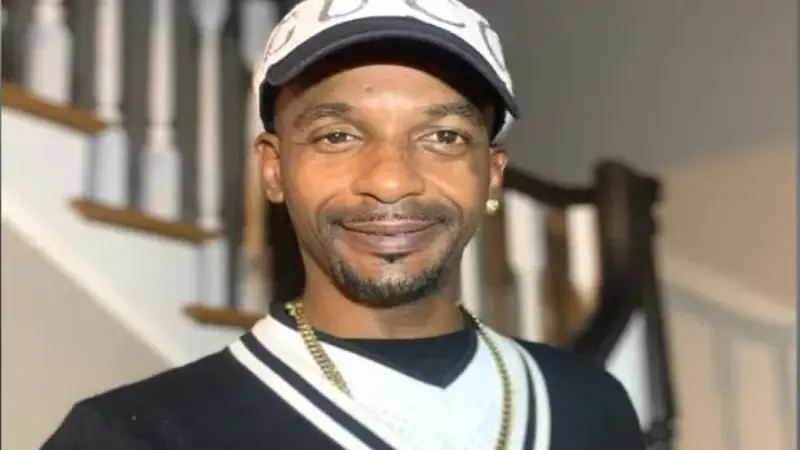charleston white wiki has become one of the most polarizing figures in contemporary American social media and activism. Known for his unfiltered opinions, sharp tongue, and controversial stances, White has captured attention in both positive and negative lights. As someone who speaks candidly about social issues, crime, and justice, he has garnered a significant following and a fair amount of criticism. His life journey, however, is as compelling as his words, providing insight into the complexities of rehabilitation, advocacy, and the power of social media.
Table of Contents
ToggleEarly Life and Troubled Beginnings
charleston white wiki was born in Fort Worth, Texas, in the early 1970s. Raised in a predominantly African American community, White grew up surrounded by both the challenges and strengths of his community. As a teenager, he became deeply involved in criminal activities. At just 14 years old, White, along with three friends, committed a violent crime that would change his life forever. They stole jackets from a department store, and in a confrontation, one of his friends shot and killed a man.
This tragic incident resulted in White being charged with capital murder. Due to his age, he was placed in the Texas juvenile justice system. This was the start of a long journey through the legal system, and his time incarcerated as a youth profoundly shaped his perspectives on life, crime, and justice. He was released at the age of 21, after serving about seven years in juvenile detention.
The Turning Point
After being released from detention, charleston white wiki had a change of heart. He credits his transformation to a combination of faith, education, and mentorship. White realized that the path he had been on would either lead him to a life of permanent incarceration or an early death. Determined to make a positive change, he began reflecting on the errors of his past and sought ways to not only improve his own life but to inspire others to do the same.
White turned to education and became an avid reader during his incarceration. He immersed himself in self-help literature, religion, and philosophy. He also connected with mentors who helped him recognize his potential to become a positive force in society. These experiences marked a turning point in his life, leading him to adopt a new approach toward life, one focused on personal accountability, rehabilitation, and change.
Founding “HYPE”
In the mid-2000s, Charleston White founded an organization called Helping Young People Excel (HYPE). The mission of HYPE is to steer young people away from a life of crime and delinquency. Having experienced the consequences of poor choices firsthand, White is deeply passionate about helping at-risk youth avoid the same pitfalls.
Through HYPE, White mentors young men, particularly those in trouble with the law. He speaks at schools, juvenile centers, and community events, sharing his personal story to emphasize the importance of making responsible decisions. His message is that no matter how far someone has fallen, they can always turn their life around, provided they are willing to take responsibility for their actions.
White has become an outspoken critic of the criminal justice system, particularly as it pertains to the treatment of young offenders. He advocates for reform and rehabilitation, arguing that the system often punishes youth without offering them meaningful opportunities to change. His work with HYPE has had a tangible impact, helping many young men find a path toward a brighter future.
The Social Media Rise
While charleston white wiki work with HYPE gained him local recognition in Texas, it wasn’t until he took to social media that he became a nationwide figure. White started sharing videos on YouTube and Instagram, where he addressed topics such as gang culture, police brutality, racism, and social justice. His raw, no-holds-barred style of commentary immediately caught the attention of viewers.
White speaks candidly about issues affecting the African American community, often delivering his messages with a blend of humor, anger, and frustration. He frequently critiques the glorification of gang culture and calls out prominent rappers for promoting lifestyles that he believes lead young people down the wrong path. His willingness to speak out against popular figures, including celebrities, has earned him both praise and backlash.
However, it is White’s unapologetic delivery that makes him a divisive figure. He is unafraid to say things that many others may avoid, and this approach has made him a lightning rod for controversy. He has been called out for making offensive statements, including remarks about race, gender, and social justice movements. While some view him as a refreshing voice willing to tackle uncomfortable truths, others see him as inflammatory and problematic.
Controversial Views and Criticism
charleston white wiki rise to fame has been largely fueled by his controversial views. He has taken stances on many issues that have sparked heated debates. One of the most contentious topics he addresses is gang culture. White has been highly critical of gangs, particularly in the African American community. He accuses gang leaders of exploiting young people and perpetuating violence and crime.
His comments on gangs, especially Crips and Bloods, have drawn the ire of many, particularly those who see gang members as products of systemic injustice rather than mere criminals. White’s response to such criticism is typically unapologetic, insisting that he is telling the hard truths necessary to create change.
In addition to gang culture, White has also been vocal about rappers and the hip-hop industry. He believes that many rap artists glorify violence, drug use, and misogyny, which has a detrimental effect on young listeners. He has publicly criticized rappers like Nipsey Hussle, King Von, and others, questioning the messages they spread through their music. These statements have angered fans and supporters of these artists, leading to online feuds and even threats against White.
His criticisms are not limited to hip-hop and gang culture. White has also spoken out against Black Lives Matter (BLM), questioning the movement’s effectiveness and motives. He argues that BLM focuses too much on police brutality and not enough on issues such as black-on-black crime. This stance has alienated many who support the BLM movement, leading to accusations that White is out of touch with the realities of systemic racism and police violence.
Despite the criticism, Charleston White remains steadfast in his beliefs. He often explains that his goal is to provoke thought and challenge people to examine issues from different perspectives. In his view, the backlash he receives is a sign that he is striking a nerve and addressing topics that need to be discussed, even if they are uncomfortable.
Legal Issues and Online Feuds
Charleston White’s social media career has not been without legal entanglements. His outspoken nature has led to confrontations with both individuals and organizations. Several lawsuits have been filed against him, often by those who feel he has defamed or slandered them through his online commentary. White has also received numerous threats and faced harassment from people who disagree with his views.
He has engaged in multiple online feuds with other social media personalities, activists, and entertainers. These feuds, while controversial, have only added to his notoriety. White has mastered the art of leveraging controversy to maintain relevance, using these conflicts to keep his name in the public eye.
His most notable feuds include exchanges with Soulja Boy, T.I., and Wack 100, among others. These public spats often involve a mix of personal insults, challenges to each other’s credibility, and discussions on deeper societal issues. In many cases, these feuds escalate on social media, where thousands of followers take sides, creating even more buzz around White’s name.
Personal Life and Philosophy
charleston white wiki personal life remains somewhat private, although he often shares snippets of his journey with his followers. He has a family, including children, and has discussed how being a father has shaped his perspective on life and responsibility. He frequently emphasizes the importance of fatherhood, personal accountability, and being a positive role model for young men.
White’s philosophy is grounded in the idea of personal responsibility. While he acknowledges the systemic issues that affect communities of color, he also believes that individuals must take control of their own lives and make better choices. He often criticizes what he sees as a culture of victimhood, arguing that people should focus on self-improvement and making positive contributions to their communities rather than blaming external factors for their problems.
His religious faith also plays a significant role in his worldview. White frequently references his Christian beliefs and the role that faith has played in his transformation. He views his work as a form of ministry, using his platform to spread a message of redemption and personal growth.
Legacy and Impact
Charleston White’s legacy is still in the making, but his impact is already undeniable. His work with HYPE has positively influenced the lives of many young men, steering them away from crime and helping them build better futures. His message of personal responsibility resonates with those who believe in the power of self-determination, even in the face of adversity.
However, his controversial style and divisive opinions have also left him with many detractors. Some view him as a provocateur who stirs up conflict for attention rather than fostering real change. Others appreciate his willingness to say what he believes, even when it’s unpopular.
Regardless of where one stands on charleston white wiki, there’s no denying that he has carved out a unique space in the world of social media and activism. His life story—from a troubled youth who spent time in juvenile detention to a social media influencer and community advocate—serves as a testament to the power of personal transformation. Whether people agree with him or not, White’s voice has made an indelible mark on contemporary discussions around crime, justice, and culture.
Conclusion
charleston white wiki is a man who defies easy categorization. He is a former offender turned community activist, a controversial social media figure, and a relentless advocate for personal responsibility. His life story is one of redemption and

